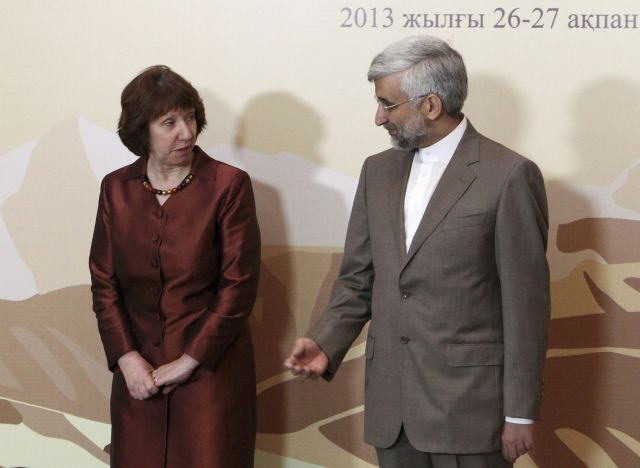Iran Nuclear Talks End; Next Round Likely To Be Resumed In April

Talks between Iran and six world powers on Tehran’s nuclear program in the Kazakh city of Almaty ended Wednesday with both sides agreeing to meet for follow-up technical level talks in Istanbul next month and to hold further high-level negotiations in Almaty in April.
During the talks, the six world powers -- France, Germany, the U.S., China, Russia and Britain -- offered to lift some sanctions if Iran curtailed its nuclear activity.
Saeed Jalili, secretary of Iran's Supreme National Security Council and the head of the Iranian delegation in the negotiations, said the talks were "more realistic” than before but warned that pressure exerted by the world community on Iran to make it shun its nuclear program has no prospects.
"Iran has always welcomed negotiations," he told a briefing Wednesday, according to an Interfax news agency report. “We see the fact that [P5+1] wish to continue negotiations realistically and based on the proper strategy to give a formula and content to the negotiations as the starting point.”
There has been no official announcement from the P5+1 since the talks ended.
Russia's negotiator, Deputy Foreign Minister Sergei Ryabkov, said the Istanbul meeting would take place Mar. 17-18 and Apr. 5-6 for the Almaty talks, Reuters reported.
The talks that ended Wednesday were the first between the world powers and Iran in eight months. Western officials described the first day of the talks as “useful,” according to Reuters.
Iran has been rejecting international calls to abandon its uranium enrichment program, which Tehran insists is for energy production and that it is an inalienable right.
This month, Iran said it had found major new uranium deposits, which has not been independently confirmed, and announced a proposed expansion of its nuclear program.
Catherine Ashton, the EU’s foreign policy chief and the chief representative of the world powers at the talks, presented what has been described as a revised offer to Iran.
The proposal reportedly repeated an earlier demand to stop uranium enrichment and to shut down the Fordo underground enrichment facility in return of lifting some of the Western sanctions.
Tuesday evening, the Iranians met separately with the Russian negotiation team, with the German delegation and with the British team. There was no separate bilateral meeting with the American delegation, according to a report in Israeli newspaper Haaretz.
The negotiations are of particular concern to Israel, which considers nuclear Iran an existential threat, while Iran and other Arab countries say the Jewish state's nuclear capabilities put the region at risk.
© Copyright IBTimes 2025. All rights reserved.






















